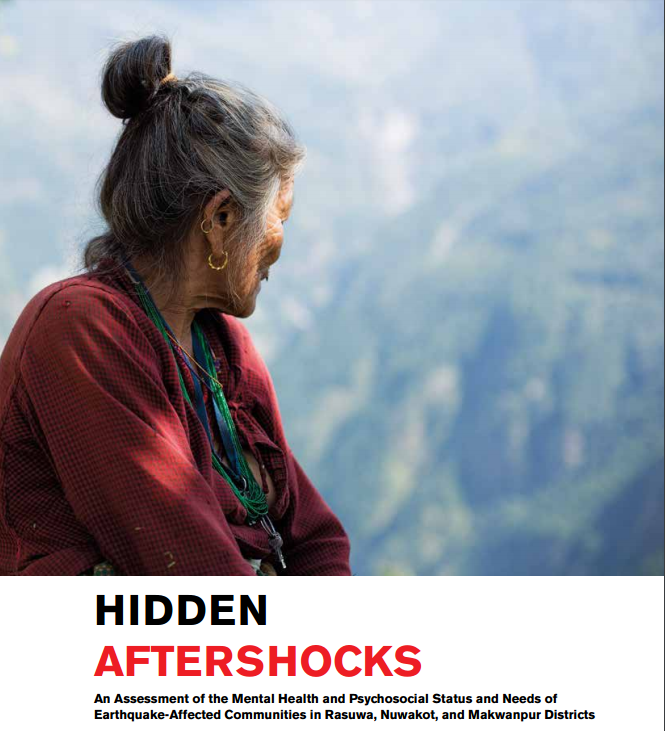Hidden Aftershocks: An Assessment of the Mental Health and Psychosocial Status and Needs of Earthquake-Affected Communities 2017

This report presents the results of an assessment of the psychosocial and mental health status and needs of communities in Rasuwa, Nuwakot, and Makwanpur districts of Nepal. The assessment took place between November 2016 and January 2017, approximately 18 months after the 2015 Nepal earthquake, and was conducted by Transcultural Psychosocial Organization Nepal (TPO Nepal) with support from the Nepal Delegation of the American Red Cross, the Nepal Red Cross Society, and other Red Cross consortium partners. The aim of this assessment was to evaluate the long-term psychosocial and mental health needs of the affected population in order to develop appropriate interventions to address those needs. This assessment used a mixed method approach including both quantitative and qualitative techniques. The assessment comprised of 510 household surveys, 30 key informant interviews, and 12 focus group discussions. The assessment followed Inter-Agency Standing Committee (IASC Nepali version) guidelines, as well as good practice principles for assessments outlined by the World Health Organization and the United Nations High Commissioner for Refugees (WHO/UNHCR, 2012).
Published: November 2017 / Copyright: American Red Cross and International Federation of Red Cross and Red Crescent Societies
